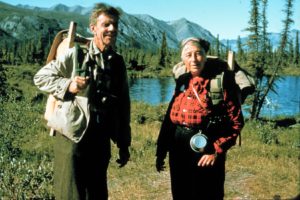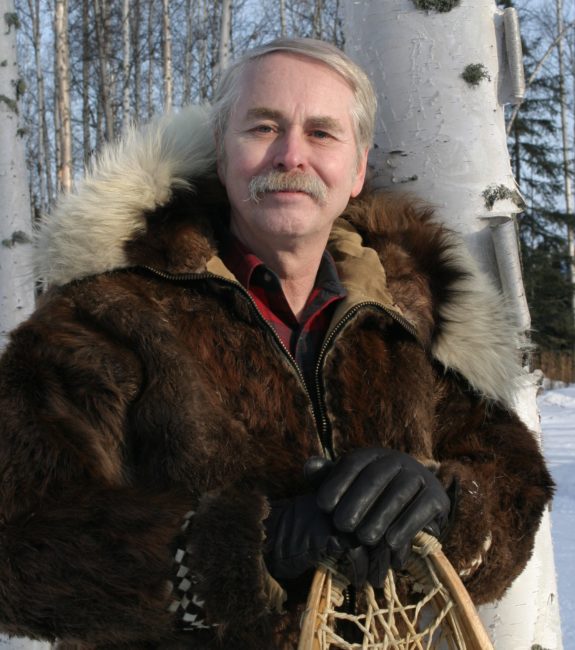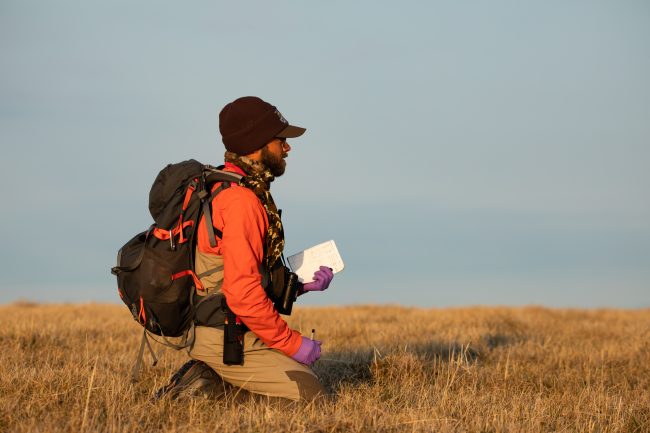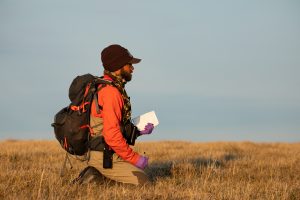Arctic Refuge, A Symbol for a Time of Global Change
Please join us online or by phone Tuesday, January 19, 2021, 5-6pm (AKT), for our Friends monthly meeting with guest speaker, Roger Kaye of the Arctic National Wildlife Refuge.
Roger Kaye has done it all – worked the Slope, spent a winter on a trapline, flew his own float and ski planes, hunted, hiked, explored all over Alaska, wrote a book on the Arctic and earned a PhD at University of Alaska Fairbanks. He has spent much of his 41-year career with the Fish & Wildlife Service experiencing, thinking about and advocating for true wilderness, particularly of the Arctic Refuge. On this 60th Anniversary of the Refuge, Roger Kaye will share some of his vast knowledge and take us back to the seven-year struggle to establish the Arctic Refuge. He will explore the similarities with the struggle to defend the Refuge today.
 Olaus and Marti Murie, two giants of Alaska conservation and science,
Olaus and Marti Murie, two giants of Alaska conservation and science,
were instrumental in protection of the Arctic through the designation of the Arctic National Wildlife Refuge.
Arctic Refuge establishment was among the first, unprecedented American conservation initiatives of the 1960s that came about in response to concern over the worsening environmental degradations accompanying the prosperous postwar march of progress. The campaign to establish the Refuge became emblematic of the larger contest between competing views of the appropriate relationship between postwar American society and its rapidly changing environment. Which notion of progress should this landscape represent—that underlying the prevailing rush toward attaining an ever-higher material standard of living, or that underpinning the emerging ecology-based perspective that emphasized sustainability and called for restraint? The question of whether or not to preserve this preeminent wilderness symbolized “the real problem,” as campaign leader Olaus Murie characterized it, “of what the human species is to do with this earth.”
Now again we face a new order of environmental threat, a convergence of global energy and resource scarcity, climate change, and widespread biospheric alterations. And now the Arctic Refuge is at the center of one of the nation’s longest and most contentious environmental debates. The question of oil development verses wilderness preservation here transcends the issue of potential resource impacts within the Refuge’s boundaries and has become symbolically intertwined with these larger, global issues. Again, the Arctic Refuge stands as a national symbol of pivotal questions and decisions Americans face: How does our consumption and material standard of living affect the national and global environments, and what quality of them are we to leave to future generations?
Roger Kaye skipped his college graduation ceremony in 1974 to come to Alaska and work at Camp Denali for famed Alaskan conservationists Cecelia Hunter and Ginny Woods. He started grad school but dropped out to earn enough money working on the Slope to buy his first airplane. Once he met that goal, he took off on a series of Alaska adventures until the money ran out. Then, he started his wildlife career first with ADFG and for 41 years the Fish & Wildlife Service. He has been a planner, refuge pilot, Native liaison and in recent years, the agency’s Alaska wilderness coordinator. He has a Ph.D. from the University of Alaska where he has taught courses on wilderness, environmental psychology, and the Anthropocene. He is the author of Last Great Wilderness: The Campaign to Establish the Arctic National Wildlife Refuge and numerous journal and popular articles related to wilderness. Currently, he is working on a book considering the future of the wildness of Wilderness in the Anthropocene. Roger lives in Fairbanks and works for the Arctic National Wildlife Refuge.
This webinar was recorded. Watch below:


